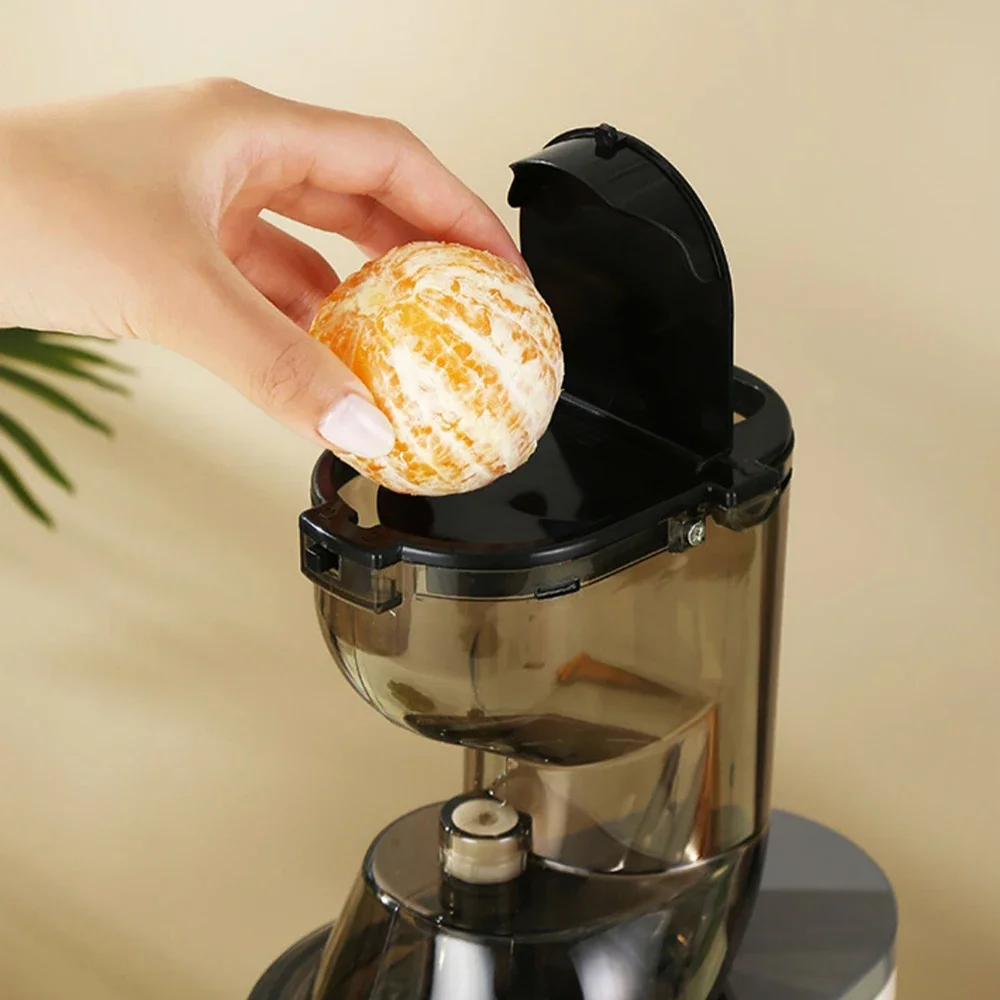
In recent years, the demand for healthy living has surged, leading many to incorporate fresh juices into their daily routines. Consequently, the quest for the best slow juicer has become a hot topic among health enthusiasts and everyday consumers alike. This comprehensive guide delves into the question, “Are slow juicers really better?” by exploring their advantages, comparing them to other types of juicers, and highlighting the key features to consider when selecting the perfect slow juicer for your needs.
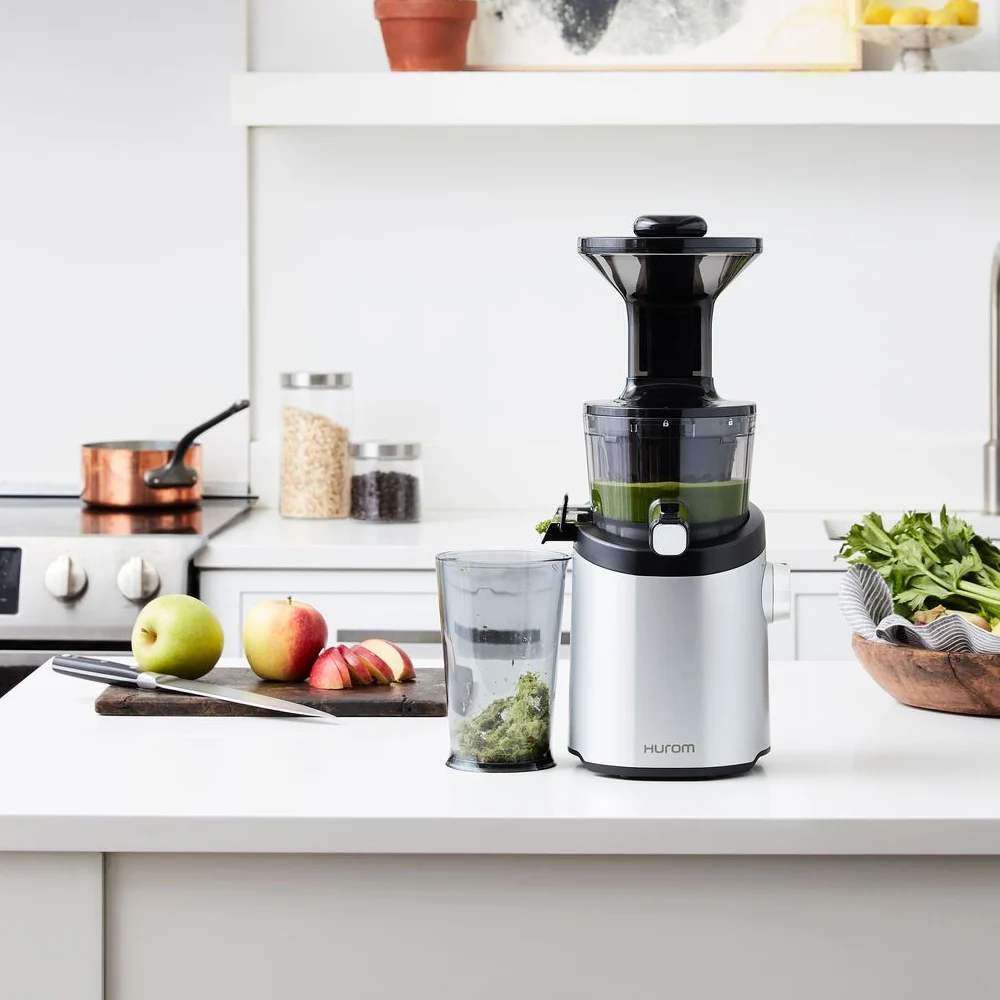 Understanding Slow Juicers vs. Centrifugal Juicers
Understanding Slow Juicers vs. Centrifugal Juicers
To determine whether slow juicers are truly superior, it’s essential to understand the fundamental differences between slow juicers and their centrifugal counterparts.
Juicing Mechanics: Slow vs. High-Speed
Slow juicers, also known as masticating juicers, operate at a lower speed compared to centrifugal juicers. They use an auger to crush and press the fruits and vegetables, extracting juice through a fine mesh filter. On the other hand, centrifugal juicers spin at high speeds to shred produce, using centrifugal force to separate juice from pulp.
As a result, slow juicers operate more quietly and with less heat generation, preserving more nutrients and enzymes in the juice. This fundamental difference in mechanics is a primary reason why many believe that slow juicers are better for health-conscious individuals.
Nutrient Retention and Health Benefits
Moreover, slow juicers are praised for their ability to retain more nutrients and vitamins compared to centrifugal juicers. The gentle crushing and pressing action of slow juicers minimizes oxidation, which occurs when juice is exposed to air and high heat. Consequently, juices made with slow juicers tend to have a longer shelf life and retain more of their natural goodness.
In contrast, the high-speed spinning of centrifugal juicers can degrade sensitive vitamins and enzymes, potentially reducing the overall nutritional value of the juice. Thus, for those prioritizing maximum nutrient intake, slow juicers present a compelling advantage.
Benefits of Using Slow Juicers
Opting for a slow juicer comes with several distinct benefits that cater to both health enthusiasts and casual juice drinkers.
Higher Juice Yield and Less Waste
Firstly, slow juicers typically yield more juice from the same amount of produce compared to centrifugal juicers. The masticating action extracts more liquid, resulting in less waste and greater efficiency. This higher juice yield not only maximizes the use of your fruits and vegetables but also makes slow juicers more economical in the long run.
Enhanced Flavor and Aroma
Additionally, slow juicers preserve the natural flavors and aromas of the ingredients better than high-speed juicers. The minimal heat generated during the juicing process prevents the breakdown of delicate flavor compounds, ensuring that your juice tastes fresher and more vibrant. As a result, juices made with slow juicers often have a richer and more authentic taste profile.
Quiet Operation and Ease of Use
Moreover, the quieter operation of slow juicers makes the juicing experience more pleasant and less disruptive, especially in households where multiple appliances are in use simultaneously. In addition to their quietness, slow juicers are generally straightforward to use, with intuitive controls and easy assembly, making them accessible to users of all experience levels.
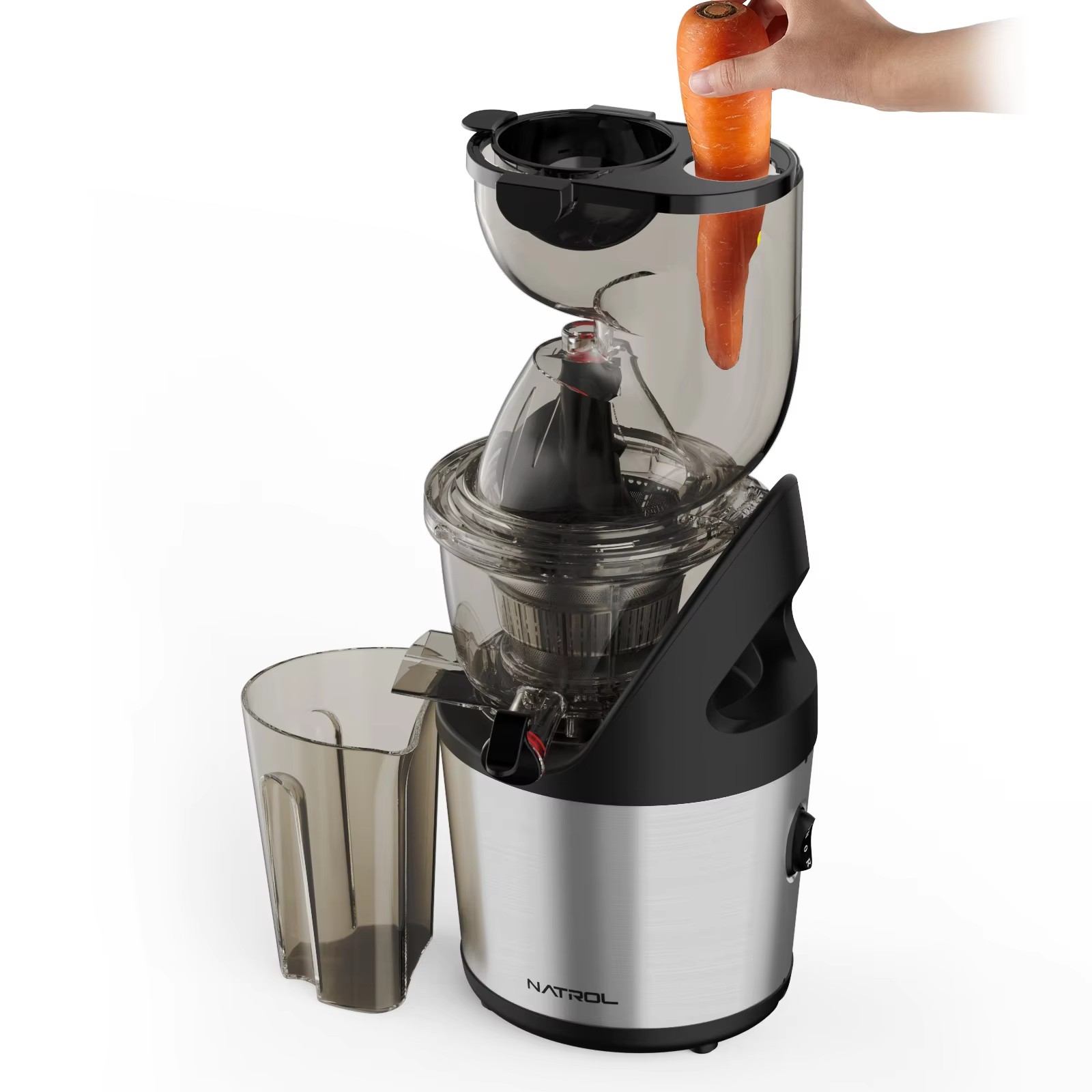 Factors to Consider When Choosing the Slow Juicer
Factors to Consider When Choosing the Slow Juicer
Selecting the best slow juicer involves evaluating several key factors to ensure it meets your specific needs and preferences.
Build Quality and Durability
One of the most critical aspects to consider is the build quality and durability of the juicer. High-quality materials such as stainless steel and BPA-free plastics ensure that the juicer can withstand regular use without deteriorating. Investing in a durable slow juicer guarantees longevity and consistent performance, making it a worthwhile addition to your kitchen.
Ease of Cleaning and Maintenance
Furthermore, ease of cleaning and maintenance is an important consideration. Look for slow juicers that are easy to disassemble and clean, with minimal parts that require thorough washing. Some models come with dishwasher-safe components, adding to the convenience and reducing the time spent on post-juicing cleanup.
Size and Capacity
Additionally, the size and capacity of the juicer play a significant role in its suitability for your household. Larger families or those who consume juice frequently may benefit from a juicer with a higher capacity and faster juicing speeds. Conversely, for individuals with limited kitchen space or those who juice occasionally, a more compact and lightweight model may be ideal.
Cost vs. Features
Moreover, balancing cost against features is essential. While the best slow juicer often comes with a higher price tag, the enhanced juice quality, durability, and additional features can justify the investment. Consider your budget and prioritize the features that matter most to you, such as multiple speed settings, wide feed chutes, and advanced filtration systems.
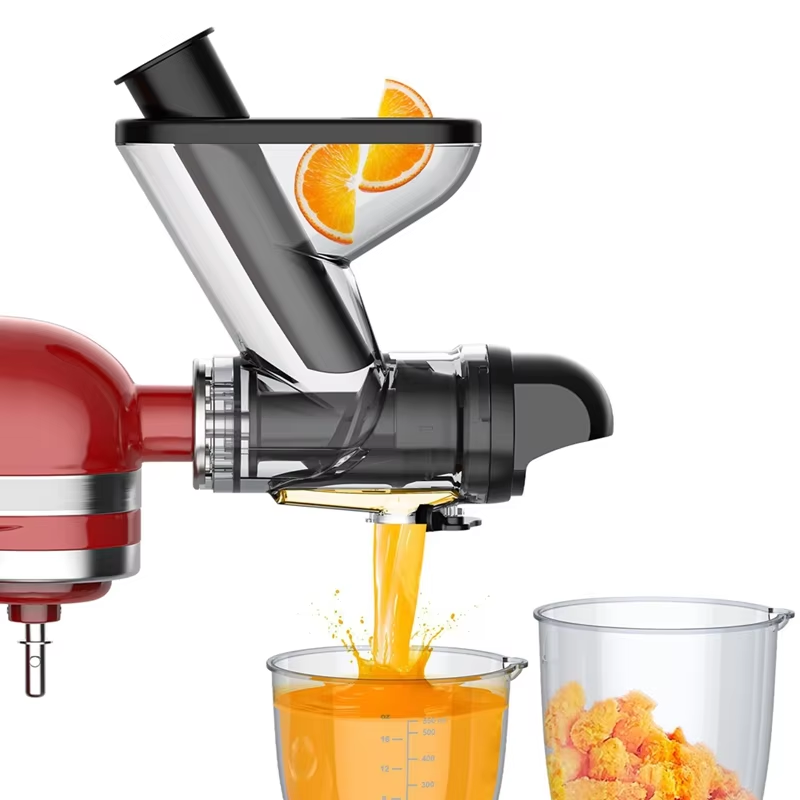 Top Features of the Slow Juicers
Top Features of the Slow Juicers
To help you identify the best slow juicer for your needs, here are some top features to look for:
Adjustable Speed Settings
Adjustable speed settings allow you to customize the juicing process based on the type of produce you’re using. Slower speeds are ideal for leafy greens and soft fruits, while slightly higher speeds can handle harder vegetables and roots. This flexibility ensures optimal juice extraction and enhances the versatility of the juicer.
Wide Feed Chutes
Wide feed chutes minimize the need for pre-cutting fruits and vegetables, saving you time and effort during the juicing process. The best slow juicer models often feature spacious feed chutes that accommodate whole apples, carrots, and other large produce items, making the juicing experience more efficient and convenient.
Food Pulp Container Size
A larger food pulp container reduces the frequency of stops to empty it during the juicing process. This feature is particularly beneficial for those who juice frequently or in large quantities. Ensuring that your slow juicer has an adequately sized pulp container enhances its practicality and usability.
Warranty and Customer Support
Lastly, consider the warranty and customer support offered by the manufacturer. A comprehensive warranty provides peace of mind and protects your investment against potential defects or issues. Additionally, responsive customer support can assist you with any questions or concerns, ensuring a positive ownership experience.
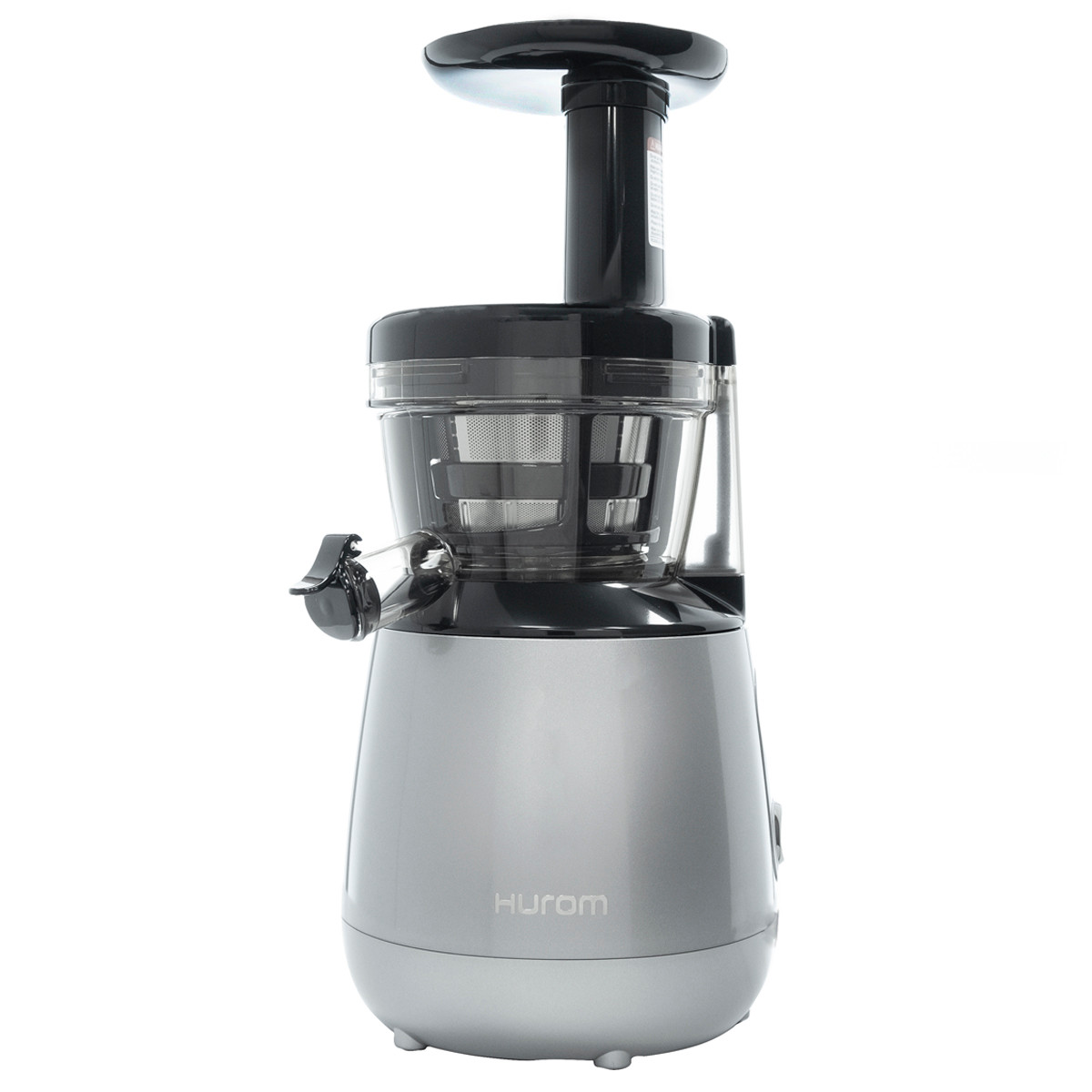 Are Slow Juicers Really Better? Analyzing the Pros and Cons
Are Slow Juicers Really Better? Analyzing the Pros and Cons
To comprehensively answer whether slow juicers are indeed better, it’s important to weigh their advantages against potential drawbacks.
The Advantages
Slow juicers offer several compelling benefits. Their ability to extract more juice, retain nutrients, and preserve natural flavors sets them apart from high-speed counterparts. Additionally, their quiet operation, ease of use, and versatility in handling different types of produce make them a favorite among juice enthusiasts. For those prioritizing health and quality, the best slow juicers deliver superior results that align with their wellness goals.
The Drawbacks
However, slow juicers do come with some drawbacks. They are typically more expensive than centrifugal juicers, which may be a barrier for budget-conscious consumers. Moreover, the juicing process can be slower, which might not be ideal for those who need to prepare juice quickly. Additionally, some models can be bulkier, requiring more countertop or storage space, which could be a concern in smaller kitchens.
User Testimonials and Expert Opinions
Hearing from users and experts can provide valuable insights into the performance and reliability of the best slow juicers.
User Testimonials
Many users praise slow juicers for their ability to produce high-quality juice with minimal waste. One satisfied customer shares, “I switched to a slow juicer, and the difference is remarkable. My juice tastes fresher, and I love that I’m getting more juice out of the same amount of produce.” Another user adds, “The quiet operation of my slow juicer makes morning routines much more pleasant. It’s worth every penny for the quality it delivers.”
Expert Opinions
Experts also endorse the benefits of slow juicers. Nutritionists emphasize that slow juicers retain more vitamins and enzymes, which are essential for a healthy diet. Additionally, culinary experts appreciate the versatility and precision that slow juicers offer, allowing for the creation of a wide range of juice flavors and textures.
 Conclusion
Conclusion
In conclusion, the best slow juicer offers numerous advantages that make it a superior choice for those seeking high-quality, nutrient-rich juices. By understanding the differences between slow and centrifugal juicers, recognizing the key benefits, and considering essential features, you can make an informed decision that aligns with your health goals and lifestyle preferences.
Moreover, while slow juicers may come with a higher upfront cost and require more time for juicing, the enhanced juice quality, durability, and versatility make them a worthwhile investment for health-conscious individuals. Whether you prioritize maximizing nutrient intake, enjoying a quieter and more efficient juicing process, or seeking a versatile appliance that can handle a variety of produce, the best slow juicer can meet and exceed your expectations.
Therefore, embracing a slow juicer can transform your juicing experience, providing delicious and nutritious beverages that support your overall well-being. Take the time to assess your needs, explore the top features, and choose a high-quality slow juicer that will be a valuable addition to your kitchen arsenal. By doing so, you ensure that every glass of juice you enjoy is packed with flavor and goodness, contributing to a healthier lifestyle.
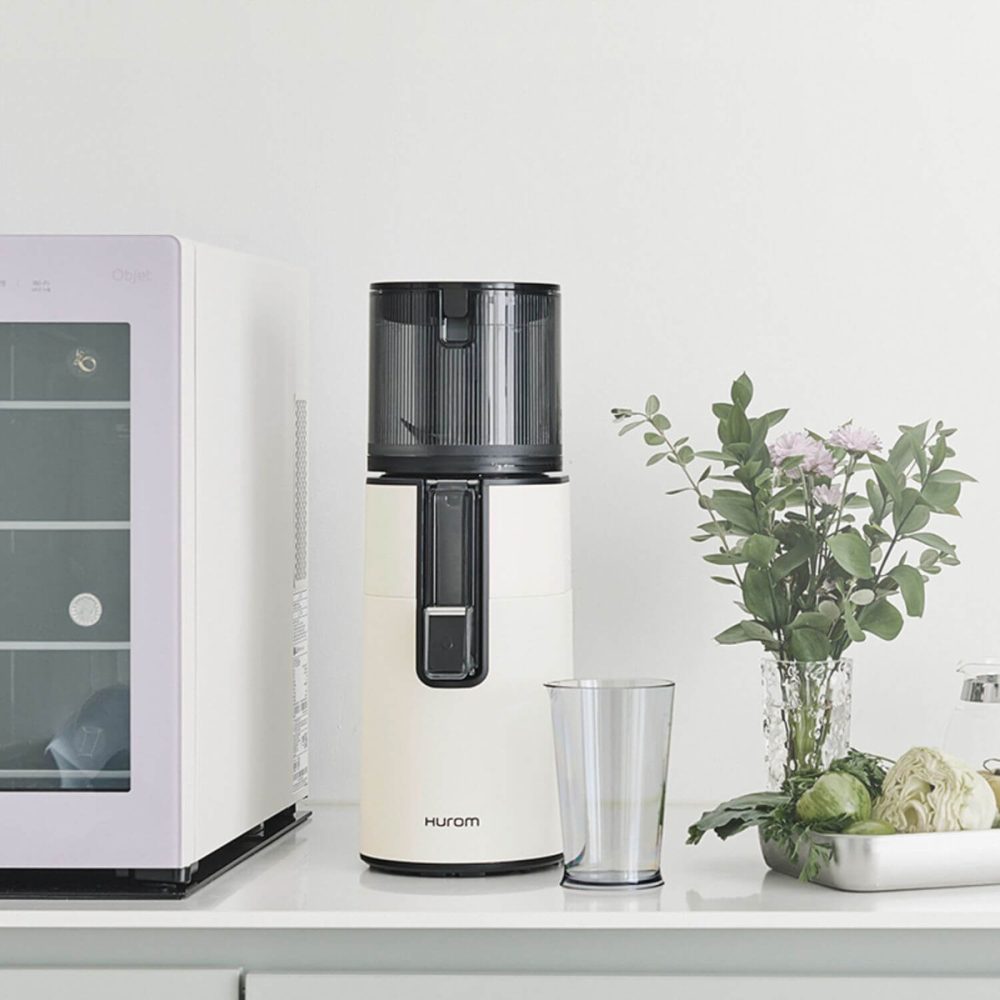
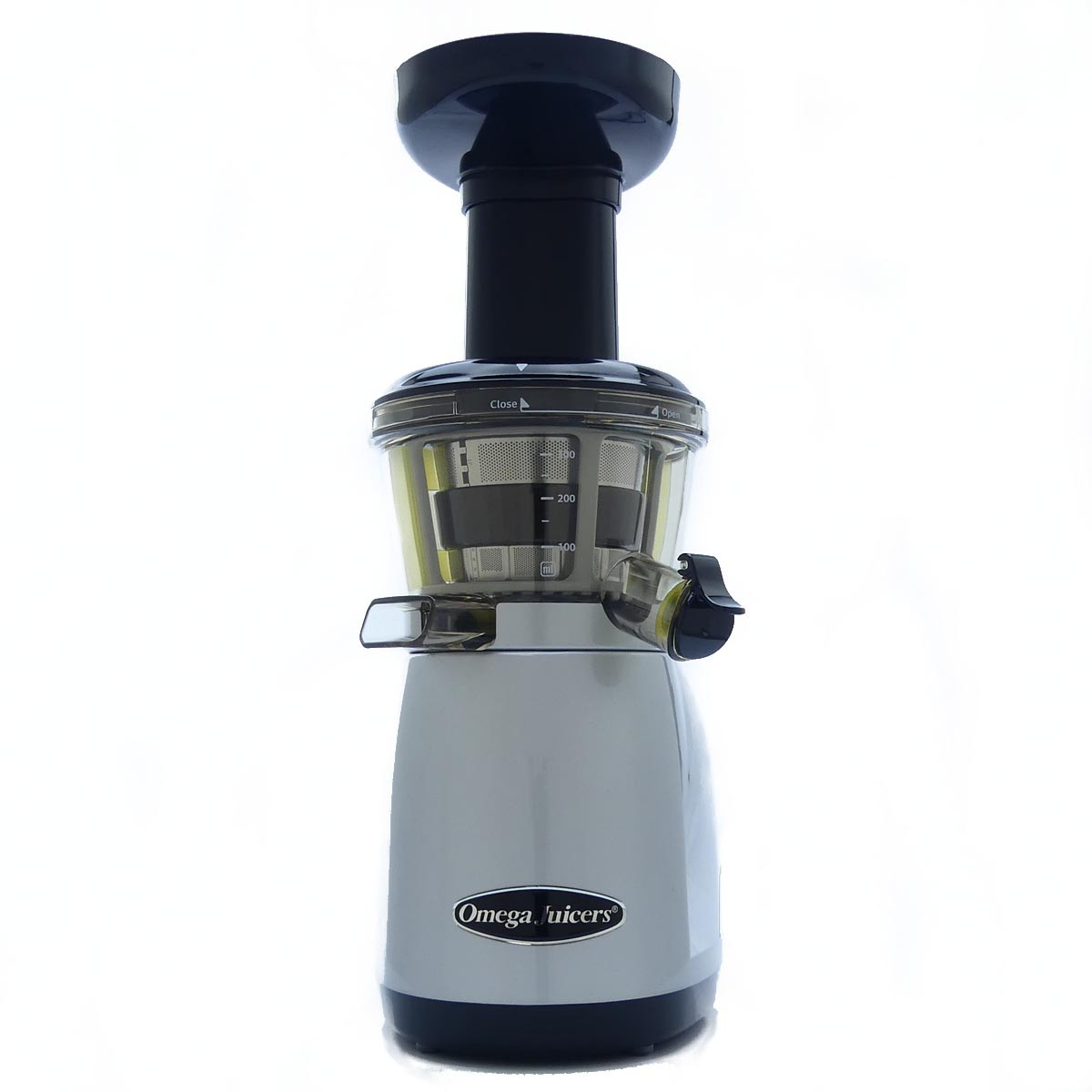 What is a Slow Juicer?
What is a Slow Juicer?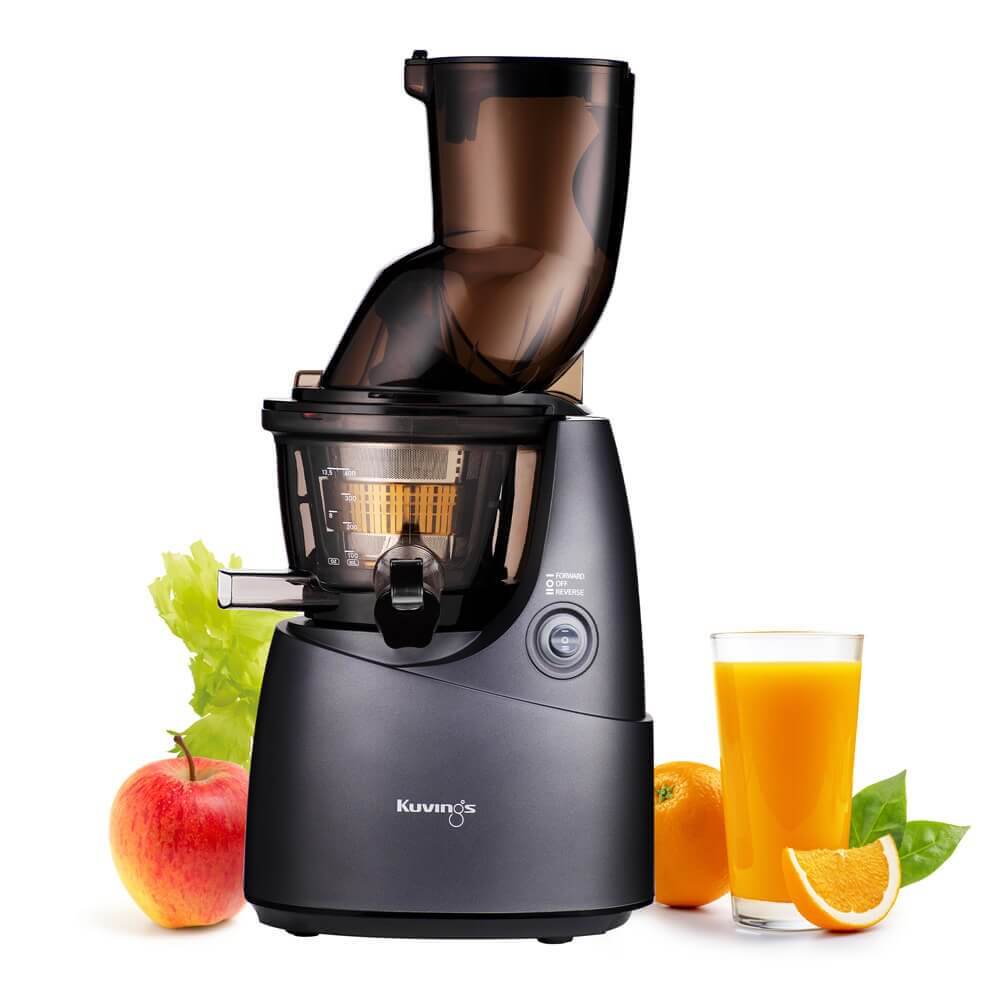 Why a Slow Juicer Makes a Perfect Valentine’s Day Gift
Why a Slow Juicer Makes a Perfect Valentine’s Day Gift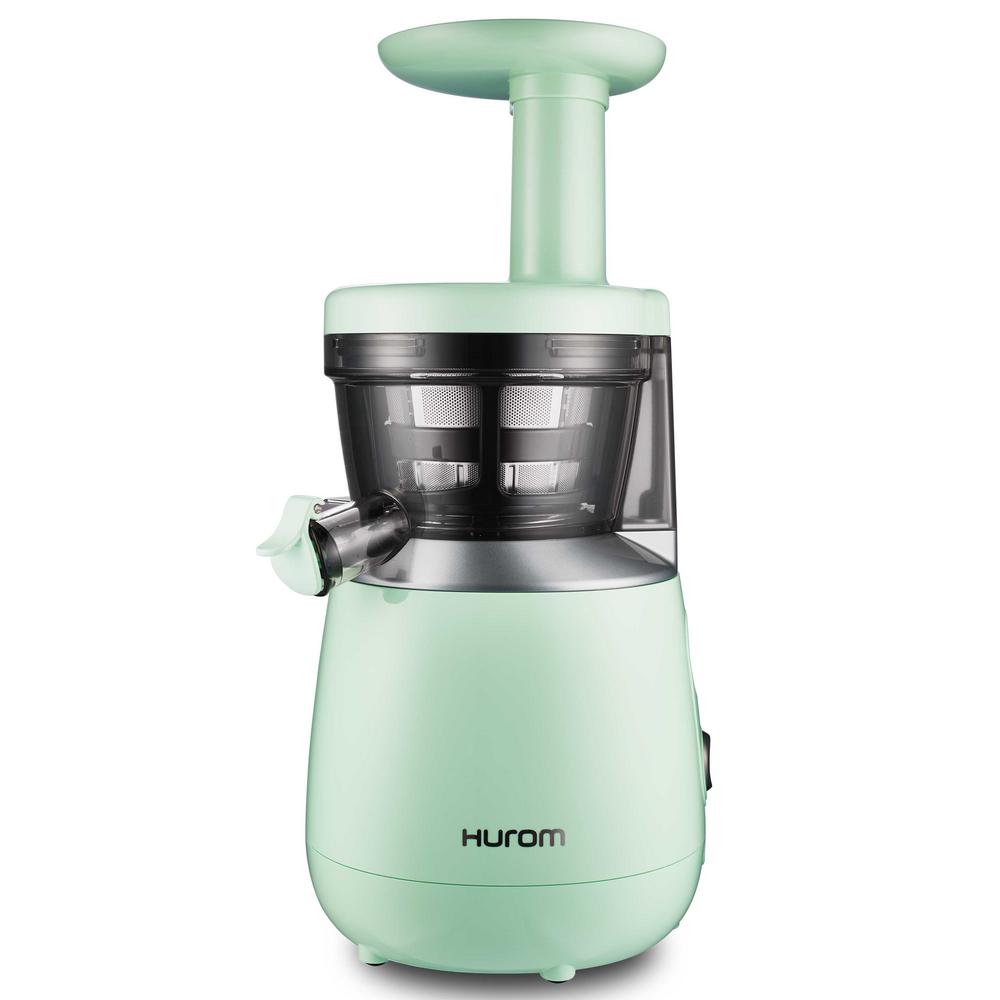 Top Features to Look for
Top Features to Look for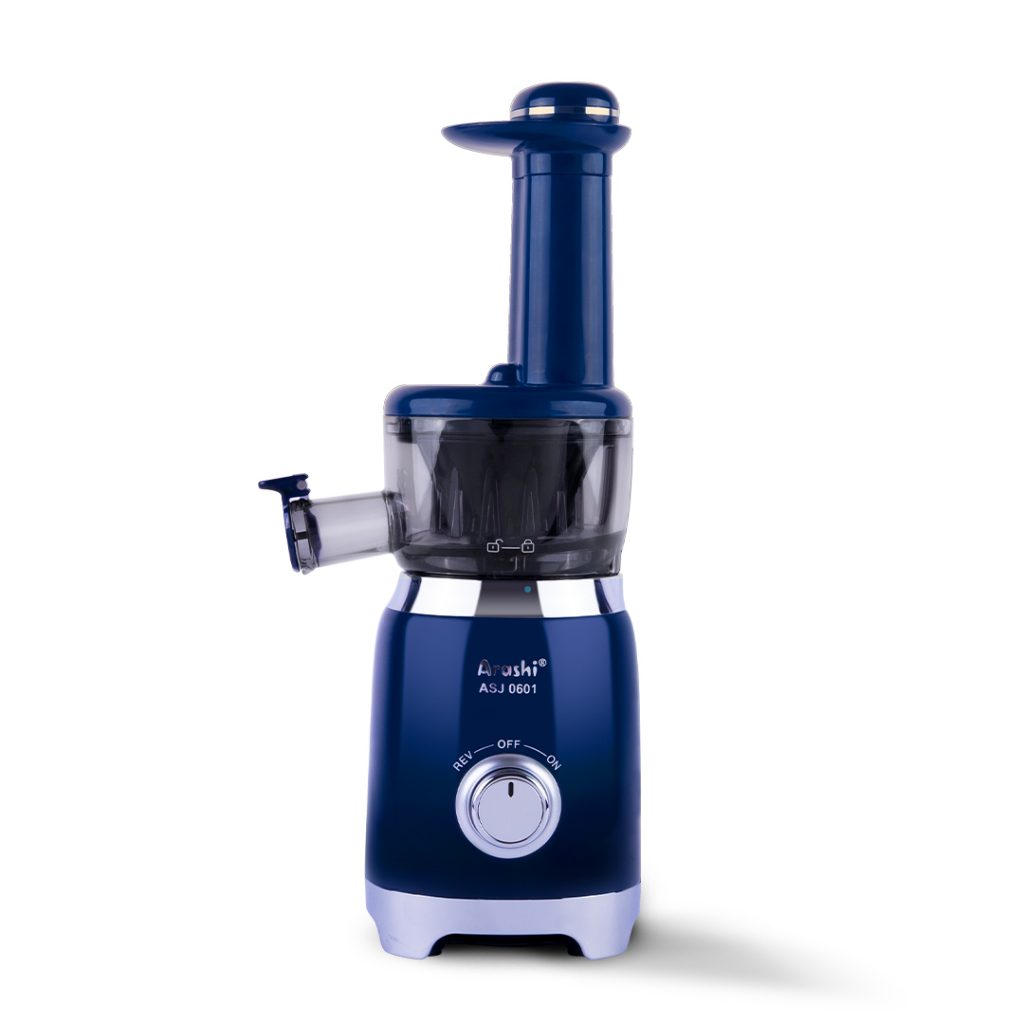 Comparing Slow Juicers to Other Juicing Methods
Comparing Slow Juicers to Other Juicing Methods